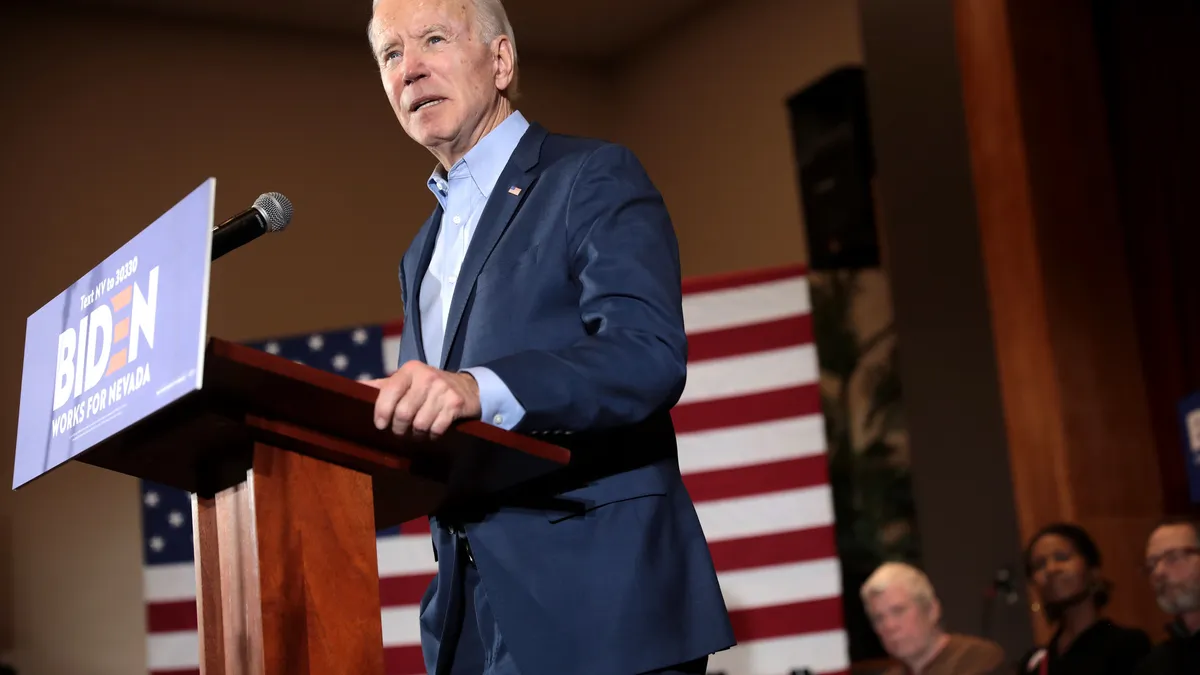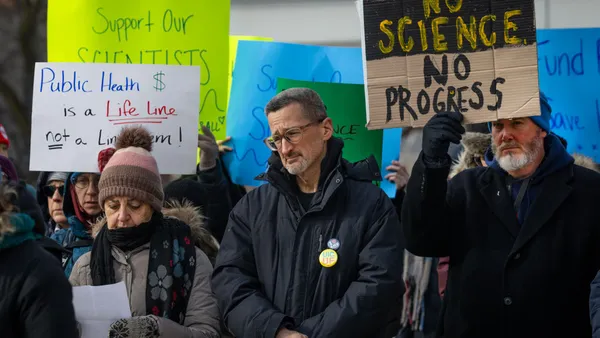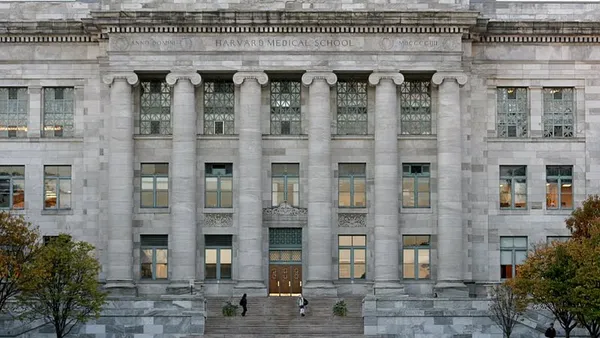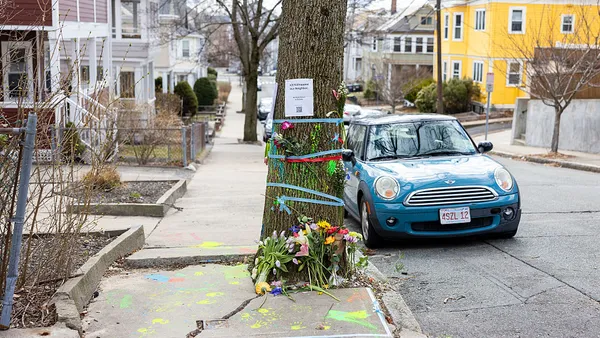Dive Brief:
- President-elect Joe Biden on Tuesday tapped Miguel Cardona, the chief of Connecticut's public schools, to lead the U.S. Department of Education.
- Cardona, a Latino man with two decades of experience in K-12 schools, fulfills Biden's pledge to pick an Education Secretary with deep roots in public education.
- But Cardona, who does not have a deep higher education leadership background, will also be tasked with guiding colleges through the public health crisis.
Dive Insight:
Cardona stands in contrast to current Education Secretary Betsy DeVos, a billionaire who emphasized school choice and promoted programs that would divert tax dollars to vouchers for students to attend private schools.
But Cardona grew up in public housing, the Hartford Courant reported. He started out as an elementary school teacher in Meriden, Conn., before serving as a principal for a decade, according to his biography. He was Connecticut's youngest principal at age 28, the Courant reported. He was picked as the state's Education Commissioner in 2019.
DeVos was an unpopular choice among education groups. And many of her postsecondary policies have been widely panned, including new regulations for how colleges should address campus sexual assault, rules that roll back an Obama-era crackdown on for-profit colleges, and stringent foreign gifts reporting requirements.
The president-elect has promised to pursue a host of changes to postsecondary education favored among progressives. He wants to make community college tuition-free, along with public four-year programs for families earning below $125,000. And he proposed instituting a program similar to Title I in K-12 schools in which money would flow to institutions with high shares of low-income students.
Ted Mitchell, president of the American Council on Education, said in an interview that the organization is excited to work with Cardona, saying his appointment would "restore the department’s commitment to serving low-income, first-generation students on their pathways to success."
Cardona has long advocated for students from low-income backgrounds and those of color. As a co-chair of the Connecticut Legislative Achievement Gap Task Force during his time as a principal, he wrote that "to address the conditions that perpetuate underachievement, we must confront poverty and systemic barriers while constantly improving upon our practices in all State agencies."
Mitchell noted that Cardona is a member of the University of Connecticut’s board of trustees, giving him "a clear view" of the challenges currently facing institutions.
ACE’s first request for Cardona and the new administration would be to double the Pell Grant, Mitchell said, as its purchasing power has not kept up with the cost of college. It’s something Biden has already pledged to do.
The group also wants Biden to take immediate action on the Deferred Action for Childhood Arrivals program, which protects from deportation foreign nationals who came to the U.S. as children and offers them pathways to education and employment. The administration also should continue to support minority-serving institutions, Mitchell said.
He added that in the long-term, Biden and Cardona should revisit what he called "policy missteps" from President Donald Trump’s Education Department, such as its new rules around Title IX, the federal sex discrimination law.
"In terms of our first ask to secretary himself, it would be to build as strong a team as he can," Mitchell said.
Cardona, as a K-12 schools chief, hasn't publicly signaled his higher ed priorities.
Colleges are still mapping out their spring plans, which public health experts say likely won't be drastically influenced by the initial release of coronavirus vaccines. The sector has also been shaken financially, plagued by lost auxiliary revenue, enrollment declines and anticipated state funding cuts. Congress passed a relief package Monday that provides roughly $23 billion for colleges, though it falls far short of the minimum $120 billion that higher ed groups requested.
Initial media reports pegged two union leaders — former National Education Association President Lily Eskelsen García and American Federation of Teachers President Randi Weingarten — as front-runners for Education Secretary. They would have been more controversial picks, however, likely garnering Republican opposition. Both women said in statements Tuesday that they support Cardona's nomination.
The Senate will have to approve Cardona as Education Secretary. In a statement shared with Higher Ed Dive, BMO Capital Markets analyst Jeff Silber predicted the confirmation will likely not be as turbulent as it was for DeVos, who needed Vice President Mike Pence to vote as the tiebreaker on her nomination. Though Cardona will be the top official guiding education policy, some of his appointed deputies will have more of a hand in higher education initiatives.
This piece has been updated to reflect the official announcement of Cardona's nomination, and with a comment from the American Council on Education.















